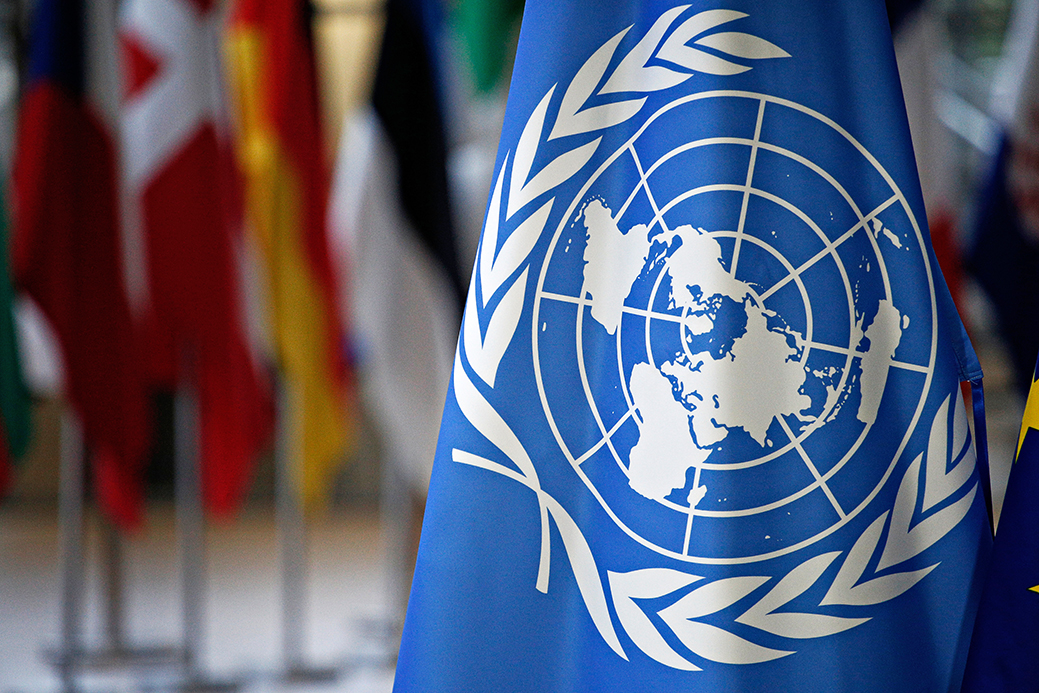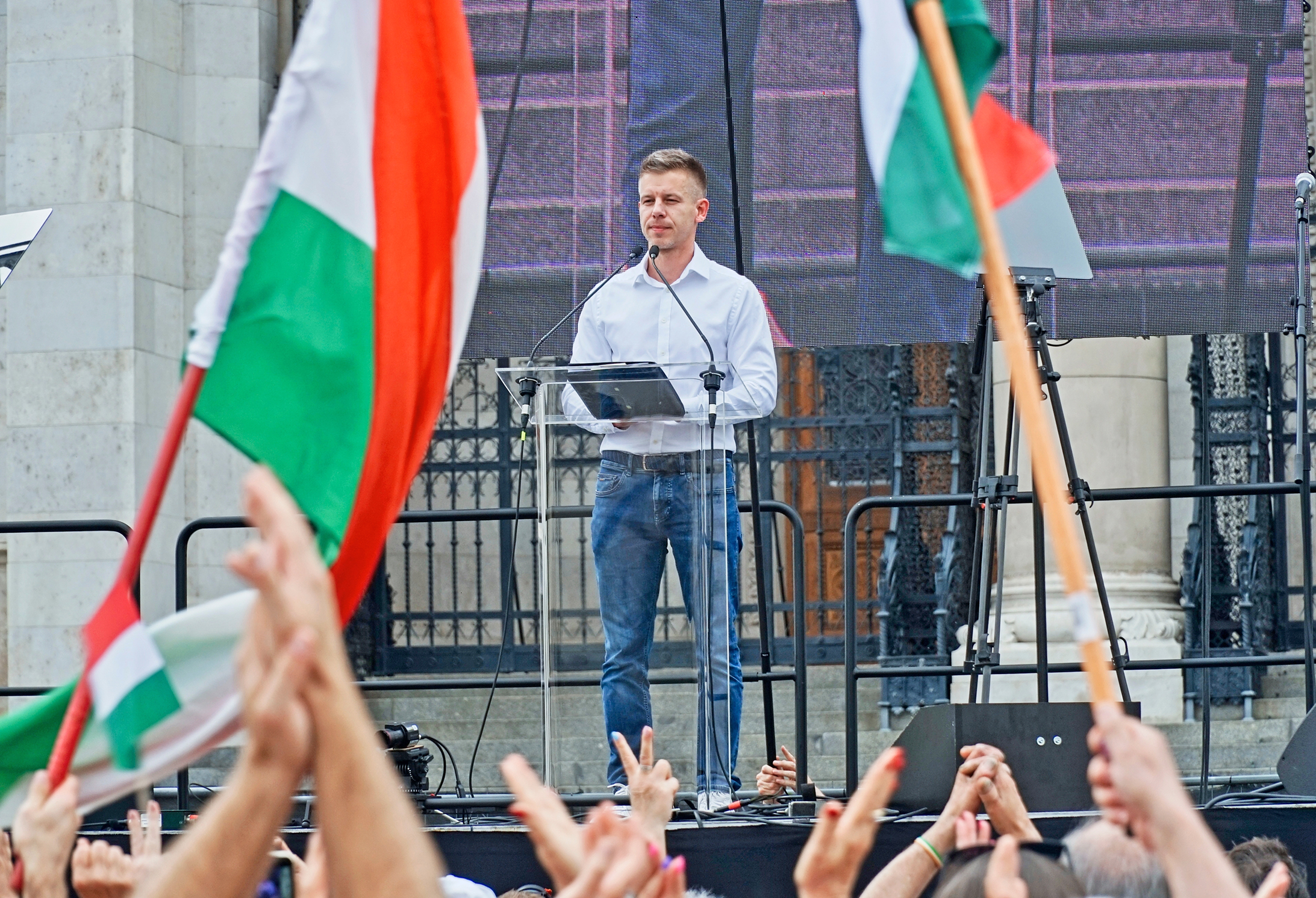Hungarians Gear up for European and Local Elections on June 9

Hungarians and citizens of EU member countries resident in Hungary go to the ballot box next month amid a level of excitement usually reserved for parliamentary elections.
When the history books on contemporary Hungarian politics are written, there will surely be one entire chapter on 2024 focusing on the meteoric rise of Péter Magyar and the previously almost unknown Tisza (Respect and Freedom) Party, of which he is vice-president.
Magyar, then aged 42, burst onto the Hungarian political stage in February after his ex-wife, Minister of Justice Judit Varga, resigned in the wake of the “pedophile clemency” scandal, which also ended the term of former President Katalin Novak.
In the subsequent four months, Magyar, who until that point had seemingly been a loyal, high-flying Fidesz-functionary with no public political profile, has transformed Hungarian politics.
Through a string of Facebook posts alleging government corruption, interviews with internet influencers, and non-stop campaigning around the country, Magyar has propelled Tisza (with himself heading the party’s EP list of candidates) into the country’s second most popular political grouping.
According to a survey in early May by Závecz Research, a respected Hungarian pollster, Magyar and Tisza had the support of 26% of those committed in the EP elections, trailing only Fidesz, with its EP list headed by founding-party stalwart Tamás Deutsch, on 39%.
This rapid growth in support for Magyar is a “symptom of the deep crisis in Hungarian politics, as it not only reflects disappointment with the Orbán regime but also a complete disillusionment with the established opposition,” political scientist András Bíró-Nagy, director of Hungarian think-tank Policy Solutions, told the Budapest Business Journal.

Péter Magyar
Swept Past
Indeed, en route to these political heights, Magyar has swept past the Democratic Coalition-led opposition grouping, headed by the DK’s Klára Dobrev (with 17% of decided voters) and also pushed the radical right Our Homeland down to 6%, perilously close to the 5% threshold needed for entry into the European Parliament.
Somewhat counterintuitively, Magyar, who early in his campaign declared himself to be largely in tune with the Fidesz nationalist-right philosophy (except for the corruption he alleges to have witnessed), has found the majority of his active supporters originate mainly from the liberal-left opposition camp. According to Závecz, this is particularly true for Momentum, the Two-Tailed Dog Party, and a grouping of minor and micro right-wing parties.
If the Závecz poll becomes a reality on June 9, it will likely result in Fidesz winning 10-11 MEP seats (down from 13 in the outgoing parliament), Tisza with four or five (all new), the DK-led alliance with four (against five previously), and Our Homeland with one.
Ágoston Mráz, founder and CEO of Nézőpont Institute, a right-leaning think-tank, predicts Fidesz support will achieve 45-47% of the vote (and 11 seats), with Tisza at around 5-7 seats. Going against most other pollsters, which put the joke-cum-protest Two-Tailed Dog Party below the threshold vote, Mráz’ has them on 8%, potentially set to win two seats. In contrast, he sees the leftist Democratic Coalition alliance garnering “a maximum” of 15% of the vote and winning just two MEP seats.
But both analysts agree that Momentum, with two MEPs in the outgoing parliament, and Jobbik, with one, are set to lose all representation.
Crucially, both pollsters have Fidesz still winning roughly 50% of the 21-strong Hungarian allocation of MEPs, a position that would be the envy of many EU governing parties.
However, for the Fidesz party leadership, such have been their expectations since 2010 that any voter support below 45% of the total would be viewed as a poor result, says Policy Solutions’ Bíró-Nagy.

Tamás Deutsch
Lacking Direct Power
Equally, whatever the Tisza success in the EP elections, it will have no direct meaning in exerting power at home: Tisza has no presence in the Hungarian Parliament, where Fidesz still controls a constitutional majority in excess of 67% of MP votes.
In essence, Magyar can speak all he wants about improving the Hungarian education and health systems (two of his campaign promises) if he succeeds in winning a seat in Brussels, but it will make little real difference to legislation tabled and passed in Budapest.
Nonetheless, Fidesz takes the EP elections very seriously, one reason being that the more powerful its cohort in Brussels is, the more attractive it is to right-wing “family groups” in the new cycle. After leaving the center-right European Peoples Party some years ago, Orbán has realized his influence has declined in the European Parliament and will, therefore, be actively seeking a haven in another grouping.
The governing party also senses danger from the growth of any new political threat and has launched a massive campaign to discredit Magyar, labeling him variously as a wife beater, a left-wing puppet of financier philanthropist George Soros (a favorite Fidesz hate figure) and a warmonger.
For Orbán, the choice is simple: a Fidesz vote guarantees peace; any vote otherwise is for war.
These campaigns have successfully kept core Fidesz voters within the fold and further encouraged opposition voters to jump into the Tisza camp in the hope that this newcomer can effect change, notably the defeat of Fidesz in the 2026 parliamentary elections.
However, at Magyar’s current level of support, any such victory remains a distant goal. Nonetheless, politicians and political scientists of all persuasions will be studying the results of the contests held on June 9 for pointers as to the possible future trajectories of politics in Hungary.

Dávid Vitézy
Incumbent Karácsony Favorite in Budapest City Mayor Race
After four and a half years at the helm in the Hungarian capital, Gergely Karácsony appears set to keep his position as Mayor of Budapest despite a formidable competitor in the person of Dávid Vitézy (an independent backed by LMP) and massive campaign support for the Fidesz candidate Alexandra Szentkirályi.
A study by pollster Publicus published on May 21 put Karácsony, a Párbeszéd (Dialogue)-Green member supported by the united opposition in 2019, with a more-than-comfortable lead of 46% voter support. This was twice that of nearest rival Vitézy, at 23%, with Szentkirályi at 19%.
The Our Homeland candidate, András Grundtner, brought up the rear with just 3%, while 9% of respondents were undecided.
However, from the start of this contest, speculation has been rife that Szentkirályi, who would inevitably face a tough battle in the liberal capital, would likely pull out of the race, leaving the contest open for Vitézy as a quasi-Fidesz combatant for the mayor’s position. (Vitézy served as head of the Budapest Transport Company (BKK) under Fidesz Mayor István Tarlós and, for a short period, was a state secretary under a Fidesz minister in 2018.)
However, speaking to foreign journalists in late April, Vitézy denied being any kind of Fidesz “mole” or any collusion between himself and Szentkirályi. Stressing his track record as an expert in urban planning and transport, he said his program is based on “social housing and housing for public employees in the national education, health and police systems,” adding that there “has been no investment at all in the rental market or in public housing” in either the current or previous mayoral terms.
Who can Vote for What?
EU Elections
The elections on June 9 consist of two entirely separate contests. First, eligible Hungarian citizens and resident EU citizens who have registered their intention of voting with their home country may vote in the European Parliamentary election for the 21 MEPs representing Hungary.
Voters can choose from parties that field “party lists” of candidates (see box). However, if the latest opinion polls prove accurate, only a handful of parties (or party alliances) will garner more than the 5% threshold of total votes cast needed to qualify for seats in Brussels.
Municipal Elections
Eligible Hungarians, legally resident EU citizens and U.K. citizens with residency in Hungary before Brexit may also vote in municipal elections to elect mayors and local councilors. The main focus of these elections is the race for the mayor of Budapest, one of the highest-profile public offices outside parliament and the presidency. (See separate box for details of candidates.) Budapest residents will also cast ballots for their district mayor and local ward councilors.
Parties Registered for the European Parliamentary Elections
The following parties or party alliances will compete for Hungary’s 21 seats in the European Parliamentary election via the list system. In the local elections, many of the parties listed here form alliances on a case-by-case basis to win mayoral seats or municipal wards.
Fidesz-Christian Democratic Peoples’ Party (Fidesz-KDNP)
Officially, the government is a coalition of the right-wing Fidesz and KDNP. In practice, even government-side politicians privately admit that the KDNP is merely a satellite grouping, subservient to the parent.
Hence, in most cases, most articles refer to the “Fidesz” government of Prime Minister Viktor Orbán. Under his leadership, Fidesz has dominated both domestic and EP elections since 2010. In 2019, it won 13 MEP seats (including one for the KDNP) in Brussels.
Tisza, the Respect and Freedom Party (Tisztelet és Szabadság Párt or Tisza)
Although founded in 2021, this tiny, virtually unknown party has shot into the limelight after being adopted by former Fidesz insider Péter Magyar to allow him to fight in this year’s EP elections. Vehemently denouncing Fidesz and its oligarchs for corruption, Magyar has seen support for Tisza leap to around 13-17% of the total electorate and some 26% of committed voters.
Democratic Coalition (Demokratikus Koalíció or DK)
A social democratic party created out of the Socialist Party by former Prime Minister Ferenc Gyurcsány. Currently holds four MEP seats in Brussels, including Klára Dobrev, Gyurcány’s wife, who heads the DK-led alliance list in this June’s elections.
Hungarian Socialist Party (Magyar Szocialista Párt or MSzP)
A social democratic party formed from the former communist party in 1989. Now a shadow of its former self, the MSzP won a single seat in the 2019 EP elections as part of the opposition alliance.
Dialogue-Greens (Párbeszéd-A Zöldek Pártja)
A left-leaning green party that formed out of LMP (Politics can be Different) in 2013. Commonly referred to as just Dialogue. The above three opposition parties are fighting the EP elections as a single coalition alliance.
Our Homeland Movement (Mi Hazánk Mozgalom)
Our Homeland is a far-right, nationalist party composed principally of former Jobbik members opposed to that party’s swing to the center in 2018. Our Homeland failed to win any EP seats in 2019 but secured six in the 2022 Hungarian parliamentary election. Current opinion polls put the party on the cusp of the 5% threshold needed to win an MEP seat.
The Hungarian Two-Tailed Dog Party (Magyar Kétfarkú Kutya Párt or MKKP)
MKKP, commonly referred to as “the Dogs,” is a spoof party, parodying the traditional party groupings, founded by student artists in 2006, though not officially registered as a party until 2014. Its party promises include free beer and eternal life. While it has won several municipal seats in local elections, it is yet to win seats in either the national parliament or in Brussels.
The following parties have seen support in most polls fall away with the growth of Tisza, meaning none is likely to win any EP seats.
LMP-Green Party of Hungary (LMP-Magyarország Zöld Pártja)
Founded in 2009 as the liberal alternative Lehet Más a Politika, or Politics can be Different, the party has had a tumultuous history, including a split with Dialogue (see above). LMP is cooperating in some seats with other parties in the municipal elections, but its decision to nominate former Fidesz state secretary for transport David Vitezy for Mayor of Budapest has led many opposition figures to denounce the party as a stooge for Fidesz.
Momentum Movement (Momentum Mozgalom)
Founded in 2017 as a liberal grouping and usually referred to merely as Momentum, the party won two MEP seats in the 2019 elections. However, recent opinion polls indicate the party will not achieve the 5% threshold in the EP election. However, Momentum is cooperating on a local level with other opposition parties in many of the municipal elections.
Jobbik-Conservatives (Jobbik-Konzervatívok)
Commonly known simply as Jobbik, the party has transformed itself over the past decade from a radical right-wing grouping to claim the center-right ground. In 2022, it won eight seats in the domestic parliament as part of a six-party opposition coalition and a single seat in the 2019 EP elections. However, this time, it is fighting the EU elections alone and is unlikely to win any seats despite its list being headed by Péter Róna, an experienced economist-legal professor at Oxford University.
Solution Movement (Megoldás Mozgalom or Memo)
Founded in 2021 by wealthy entrepreneur György Gattyán, Memo has a minimal voter base and is highly unlikely to win any EP seats this year.
Everybody’s Hungary People’s Party (Mindenki Magyarországa Néppárt or MMM)
Led by Péter Márki-Zay, the opposition alliance’s nominee for prime minister in the 2022 general election. His star has waned in the two years since then.
Second Reform Era Party (Második Reformkor Párt, abbreviated to 2RK.)
Led by former Jobbik president Gábor Vona, 2RK barely registers in most opinion polls
This article was first published in the Budapest Business Journal print issue of May 31, 2024.
SUPPORT THE BUDAPEST BUSINESS JOURNAL
Producing journalism that is worthy of the name is a costly business. For 27 years, the publishers, editors and reporters of the Budapest Business Journal have striven to bring you business news that works, information that you can trust, that is factual, accurate and presented without fear or favor.
Newspaper organizations across the globe have struggled to find a business model that allows them to continue to excel, without compromising their ability to perform. Most recently, some have experimented with the idea of involving their most important stakeholders, their readers.
We would like to offer that same opportunity to our readers. We would like to invite you to help us deliver the quality business journalism you require. Hit our Support the BBJ button and you can choose the how much and how often you send us your contributions.












